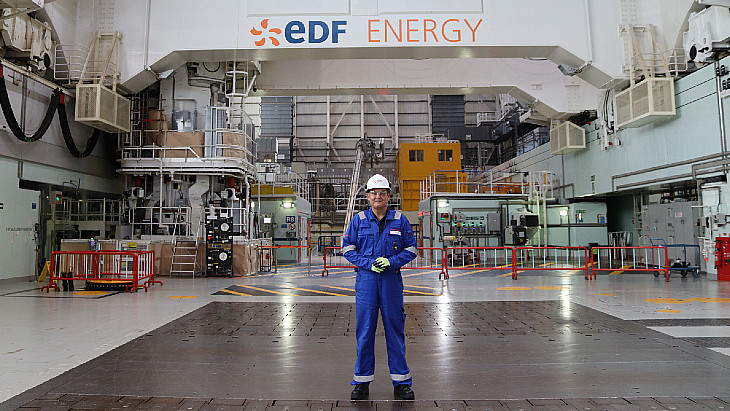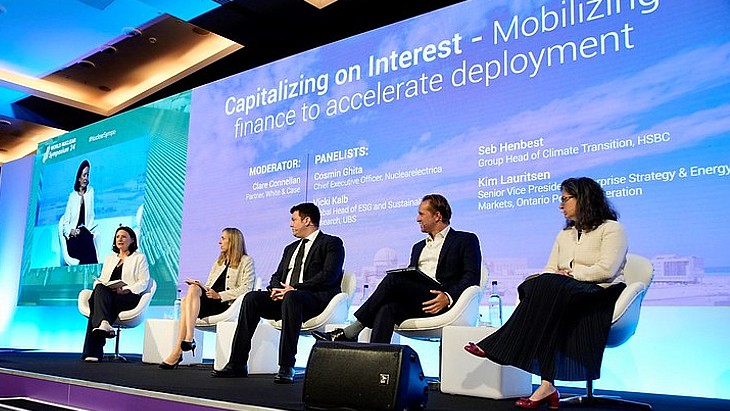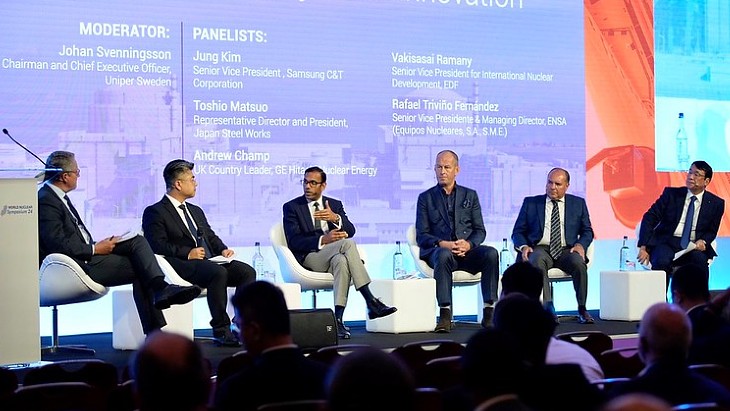Viewpoint: Creating a level playing field in energy markets

Are liberalised energy markets operating efficiently and fairly? A lot of people would answer: YES. We have such energy markets in Europe, where everybody has the same opportunity to sell their product and there is consumer choice. But are these markets really working well? Of course not. Can you imagine a market on which you can acquire a car for free and the seller pays you additional money to persuade you to 'buy' it? Such a situation happens regularly in Germany, the biggest energy market in Europe.
The situation arises from the fact that its market has been designed to encourage the generation of electricity from subsidised renewable energy. On the other hand, investment is deterred when energy prices fall below the costs of producing it. In order to incentivise investment yet more subsidies are then provided. What began as an attempt to create a competitive open market for enabling the transition to a clean energy system has turned into a system micro-managed by the state.
It is great to be able to make use of the wind, water and sunshine, which are resources that no one owns and which have low carbon footprints, but water resources are limited and the biggest two sources, wind and sun, are not stable. There is a disconnect between consumers who want round-the-clock power and intermittent or seasonal renewable energy sources. To make use of them the energy system must have flexibility and reliability of operation at the same time.
We should also create a level playing field in energy markets which optimise low-carbon energy resources that are already in place and drive investment in future clean energy, and where nuclear energy competes on equal terms with other low-carbon technologies and is recognised for its value in a reliable, resilient, low carbon energy mix. In too many liberalised energy markets, longer-term power purchase agreements are negotiated off-market and cannot therefore provide the correct signals to incentivise investment, while short-term price volatility creates uncertainty.
To define a fair energy market we need six basic principles:
- Network security (security of supply) should be maintained in all circumstances unless force majeure applies;
- All normal operational costs (including all external costs, such as polluting emissions, disposal of wastes and decommissioning) should be internalised;
- Market risks should be borne by market players not by customers unless these are accepted explicitly;
- All generators should offer dispatchable power (that is, they must have back-up generation or storage capacity available to them to honour their contracts for energy supply). No more priority access for non-dispatchable energy;
- Suppliers should offer prices that cover all their costs (no hidden costs, no predatory pricing or 'free lunches');
- Independent market administrators should publish publicly available real-time information on prices.
A fair energy market will also need some market rules giving all participants the same position on a level playing field.
Market rules for a level playing field
- Consumers (households and small enterprises) must be offered a standard contract by energy retailers/utilities with a fixed tariff for a minimum of 12 to 24 months unless explicitly agreed otherwise;
- Energy retailers must never cut off energy supply to paying customers except under force majeure;
- Energy market regulators should set up time-specific wholesale markets for reliable energy supply, for example, 15-60 minutes ahead, day ahead, or many months ahead;
- Energy retailers must pay for energy purchased from generators for the contracted period of supply (that is, 15-60 minutes ahead, day ahead, or many months ahead);
- Energy generators must supply power for the contracted period except under force majeure (that is, they must have access to stand-by capacity and/or storage options at their own cost);
- The transmission system operator undertakes/procures load balancing services (to support a mandated level of reserve capacity or to curtail excess supply) and frequency control services to ensure system stability in the intraday energy markets.
In summary, a clean energy system based on fair energy market principles can use:
- Nuclear energy to provide reliability of supply (and also some flexibility) within long-term energy markets that match baseload demand/supply;
- Intermittent renewable energy provided it is dispatchable over the short-term to offer reliability. A ‘firm power’ commitment is not unreasonable since intermittent power producers will be able to bid into the intraday and day ahead markets with certainty;
- Dispatchable renewable sources that offer seasonal or long-term reliability and flexibility, like hydro-electricity and geothermal sources; biogas or other thermal power plants burning biomass on a sustainably farmed basis is another option. But we should take into account that plants remove CO2 from the atmosphere and it is not optimal to release those gases back into the atmosphere through burning.
Thus defined, a fair energy market becomes a space where investment signals are based on economic value to consumers. It is interesting that in Britain the market regulator, the Office of Gas and Electricity Markets, and trade unions have formed consumer cooperatives to negotiate collective agreements with the energy utilities. It is a recognition that the market power of energy utilities has to be balanced if consumers are to receive a fair deal. In any case, consumers should have the right to a standard supply contract accepted as fair by the energy market regulator.
In the same way, small-scale power producers, for instance farmers with some wind turbines on their land or prosumers with solar panels on their roofs, are forming producer cooperatives in Poland to take advantage of the decentralisation of energy supply and demand. Energy supply aggregators can provide small-scale energy producers with access to back-up generation or storage capacity to enable them to meet their contractual commitments.
Can we have competitive energy markets which operate on a level playing field for producers, retailers and consumers? Yes we can!
Dr Sobolewski is a former director of the Nuclear Energy Department at the Ministry of Energy in Poland. The opinions expressed are those of the author.










